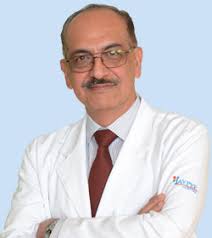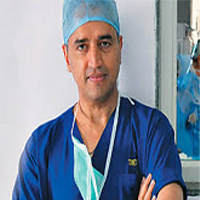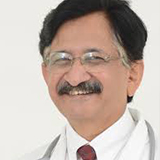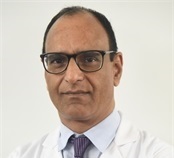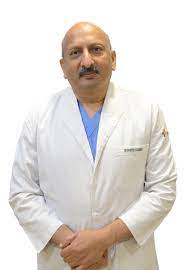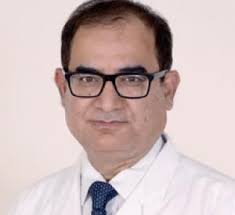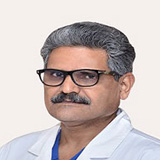Heart Valve Replacement IN INDIA
Heart valve replacement surgery is a critical intervention that replaces damaged or diseased heart valves with artificial or biological alternatives, restoring normal blood flow and heart function. India has become a leading global destination for heart valve replacement due to its state-of-the-art medical infrastructure, highly skilled cardiac surgeons, and cost-effective healthcare solutions. In this detailed guide, we will explore everything about heart valve replacement surgery in India, including the types of valves, procedure details, cost analysis, city-specific cost breakdown, and why Al Afiya MediTour is an excellent choice for patients seeking high-quality care.
Introduction
The heart is the lifeline of the human body, and its proper functioning depends heavily on its valves. These valves ensure unidirectional blood flow through the heart chambers and prevent backflow. However, various factors such as aging, infections, and congenital issues can lead to valve dysfunction, disrupting blood circulation. Heart valve replacement surgery becomes essential in such cases to restore normal cardiac function and prevent life-threatening complications.
India has positioned itself as a global hub for cardiac surgeries, offering advanced treatments, personalized care, and affordable options for both domestic and international patients.
What is Heart Valve Replacement?
Heart valve replacement is a surgical procedure where a damaged or diseased heart valve is replaced with a new valve to restore normal blood flow. This procedure is performed when a valve is so severely damaged that repair is no longer an option.
Types of Heart Valves
The human heart has four valves:
- Aortic Valve: Controls the blood flow from the left ventricle to the aorta.
- Mitral Valve: Regulates blood flow between the left atrium and the left ventricle.
- Tricuspid Valve: Ensures proper blood flow from the right atrium to the right ventricle.
- Pulmonary Valve: Guides blood flow from the right ventricle to the pulmonary artery.
When these valves fail to function properly due to narrowing (stenosis) or leakage (regurgitation), it results in abnormal blood flow and can strain the heart.
Why is Heart Valve Replacement Needed?
Heart valve replacement is recommended when valves become dysfunctional due to various conditions.
Common Reasons for Valve Replacement
- Valve Stenosis
- Occurs when the valve opening narrows, restricting blood flow.
- Leads to increased pressure within the heart chambers.
- Valve Regurgitation
- Happens when a valve doesn’t close tightly, causing blood to leak backward.
- Can lead to an inefficient blood-pumping mechanism.
- Congenital Heart Valve Defects
- Abnormalities present at birth that impair valve function.
- Infective Endocarditis
- A bacterial or fungal infection causing inflammation and damage to heart valves.
- Severe Calcification
- Hardening and stiffening of valve tissues due to calcium buildup.
What are the types of Heart valve replacement?
Heart valve replacement involves selecting the appropriate valve type based on the patient’s age, lifestyle, and medical needs.
Mechanical valves: They are constructed from durable materials like titanium and carbon, offering a long lifespan of 20-30 years or more. However, patients with mechanical valves need to take lifelong anticoagulation to prevent blood clot formation, making them ideal for younger patients who require a lasting solution.
Biological valves: Biological valves are made from animal tissue or human donor tissue and do not require long-term use of anticoagulants. These valves are typically suitable for older patients or those who cannot take blood thinners, with a lifespan of 10-15 years before needing replacement.
Transcatheter valves: Transcatheter valves are used in minimally invasive procedures like Transcatheter Aortic Valve Replacement (TAVR). These valves are ideal for high-risk or elderly patients who are unable to undergo open-heart surgery. They offer faster recovery times and less postoperative discomfort, making them a preferred choice for patients who need a less invasive option.
What are the Procedure of Heart Valve Replacement Surgery?
Heart valve replacement is a highly specialized procedure requiring meticulous planning and execution.
What are the Costs of Heart Valve Replacement in India?
India is recognized for offering affordable yet high-quality healthcare services. The cost of heart valve replacement surgery is significantly lower than in Western countries, making it a preferred choice for international patients.
City-Wise Cost Breakdown
| City | Cost Range (INR) | Cost Range (USD) | Remarks |
| Delhi | ₹300,000 – ₹500,000 | $3,600 – $6,000 | Known for top-tier hospitals and specialists. |
| Mumbai | ₹350,000 – ₹600,000 | $4,200 – $7,200 | Offers premium healthcare services. |
| Bangalore | ₹250,000 – ₹450,000 | $3,000 – $5,400 | Affordable options with advanced facilities. |
| Chennai | ₹250,000 – ₹400,000 | $3,000 – $4,800 | Renowned for cardiac care excellence. |
| Hyderabad | ₹200,000 – ₹400,000 | $2,400 – $4,800 | Affordable with top-rated surgeons. |
| Kolkata | ₹180,000 – ₹350,000 | $2,200 – $4,200 | Economical without compromising quality. |
What are the Factors Affecting Cost of Heart Valve Replacement?
Several factors influence the cost of heart valve replacement in India:
- Type of Valve: Mechanical valves are costlier but last longer, while biological valves are cheaper but require replacement sooner.
- Surgical Technique: Minimally invasive techniques like TAVR are more expensive than traditional open-heart surgery.
- Hospital Location: Metropolitan hospitals typically charge higher due to advanced facilities and specialized staff.
- Surgeon’s Expertise: Renowned cardiac surgeons often charge premium fees for their services.
Postoperative Care: Costs for ICU stays, medications, and follow-up consultations add to the total expense.
Why Choose India for Heart Valve Replacement?
India is a global leader in providing advanced cardiac care, offering unparalleled benefits to patients.
- World-Class Medical Facilities: India boasts internationally accredited hospitals equipped with cutting-edge technology.
- Highly Skilled Surgeons: Renowned cardiologists like Dr. Devi Shetty (Narayana Health, Bangalore) and Dr. Naresh Trehan (Medanta, Gurgaon) are globally recognized for their expertise.
- Cost-Effective Solutions: The cost of heart valve replacement in India is 60-80% lower than in the U.S. or Europe, without compromising on quality.
- Medical Tourism Support: Facilitators like Al Afiya MediTour assist with visa processin g, travel arrangements, and post-surgical care, ensuring a seamless experience.
Why Choose Al Afiya Meditour for Heart Valve Replacement?
Al Afiya Meditour provides a comprehensive and affordable solution for heart valve replacement in India. The organization partners with leading hospitals equipped with state-of-the-art technology and world-renowned cardiologists to ensure the highest quality care.
They offer personalized packages tailored to each patient’s needs, ensuring affordability without compromising on care. Additionally, Al Afiya Meditour provides full support, from arranging travel and accommodation to post-operative care, making the entire process seamless and stress-free. With a focus on patient satisfaction and well-being, Al Afiya Meditour guarantees the best outcomes for heart valve replacement surgeries.
Symptoms Suggesting Valve Replacement
Patients experiencing the following symptoms should consult a cardiologist for evaluation:
- Persistent shortness of breath.
- Swelling in the legs, ankles, or abdomen.
- Fatigue even during minimal activities.
- Chest pain or discomfort.
- Irregular heartbeat or palpitations.
Pre-Surgery Preparation
- Diagnostic Testing: Tests such as echocardiography, chest X-rays, and blood tests help assess the severity of the valve disease.
- Medication Adjustments: Patients are instructed to stop certain medications, such as blood thinners, before surgery.
- Fasting: Most patients are required to fast for 8-12 hours prior to the procedure.
Counseling: Doctors explain the procedure, potential risks, and recovery plan to the patient and their family.
Surgical Techniques
Open-Heart Surgery
- Traditional approach requires a large incision in the chest.
- The heart is temporarily stopped, and a heart-lung machine takes over blood circulation.
- The damaged valve is removed and replaced with a new valve.
Minimally Invasive Surgery
- Involves smaller incisions and advanced surgical tools.
- Techniques include robotic-assisted surgery and TAVR.
- Results in shorter recovery times and less scarring.
Post-Surgery Care
- Patients are closely monitored in an intensive care unit (ICU) for 24-48 hours.
- Pain management, wound care, and physiotherapy are initiated.
- Recovery at home includes medication, a heart-healthy diet, and follow-up visits to monitor progress.
Top Heart Valve Replacement Doctors in India
The right doctor to consult for a Heart Valve Replacement case.
Dr. Bhaba Nanda Das
Year of experience: 48
HOD and Senior Consultant at Indraprastha Apollo Hospital, Delhi
Dr. Ashok Seth
Year of experience: 40
Senior Consultant at Fortis Escorts Heart Institute, Delhi
Dr. Atul Mathur
Year of experience: 41
Executive Director and Senior Consultant at Fortis Escorts Heart Institute, Delhi
Dr. D.K. Jhamb
Year of experience: 29
Director and Senior Consultant at Shalby Sanar International Hospital, Gurgaon, India
Dr. Ganesh K. Mani
Year of experience: 37 Years of Experience
Dr. K. K. Saxena
Year of experience: 44
Consultant at Indraprastha Apollo Hospital, Delhi
Dr. Mahesh Chandra Garg
Year of experience: 49 Years of Experience
Dr. Murtaza Ahmed Chishti
Year of experience: 34 years of experience
Dr. Nikhil Kumar
Year of experience: 42
Senior Consultant at Fortis Memorial Research Institute, Gurgaon
Dr. Praveen Chandra
Year of experience: 37+ Years of Experience
Dr. Rajneesh Malhotra
Year of experience: 31+ Years of Experience
Dr. Sanjeev Chaudhary
Year of experience: 30
Chairman and Senior Consultant at Marengo Asia Hospitals Formerly W Pratiksha Hospital, Gurgaon
Dr. Sandeep Attawar
Year of experience: 22 years of experience
Dr. T. S. Kler
Year of experience: 48
Senior Consultant at BLK Super Speciality Hospital
Dr. Udgeath Dhir
Year of experience: 18+ Years of Experience
Dr. Y K Mishra
Year of experience: 32 years of experience
Looking For The Best Doctor & Hospital?
Fill up the form and get assured assitance within 24 hrs!
FAQs
- What is the cost of heart valve replacement in India?
The cost of heart valve replacement in India varies between ₹1,50,000 to ₹5,00,000, depending on the hospital, type of valve, and the complexity of the procedure. - How long does heart valve replacement surgery take?
The procedure typically lasts 2 to 4 hours, depending on the type of surgery (open heart or minimally invasive). - Is heart valve replacement covered under insurance in India?
Yes, heart valve replacement surgery is generally covered by most health insurance policies in India, but it’s important to check the specifics with your insurance provider. - What are the risks associated with heart valve replacement surgery?
Like any major surgery, risks include bleeding, infection, blood clots, and valve dysfunction. However, these risks are minimal with proper care and expert surgical techniques. - What is the recovery time for heart valve replacement surgery?
Recovery time typically ranges from 6 weeks to 3 months, depending on the type of procedure and the patient’s overall health. - Can I travel internationally for heart valve replacement in India?
Yes, India is a leading destination for medical tourism, offering world-class healthcare at an affordable price. Al Afiya Meditour helps international patients with travel, accommodation, and other logistical support. - What types of heart valves are used in heart valve replacement surgery?
The most common types of heart valves used are mechanical valves, biological valves (from animal or human tissue), and transcatheter valves, with the choice depending on factors like the patient’s age and medical condition. - What is the success rate of heart valve replacement surgery?
Heart valve replacement surgery has a high success rate, with most patients experiencing significant improvement in quality of life post-surgery. - How long will the new heart valve last?
Mechanical valves last 20-30 years, while biological valves generally last 10-15 years. However, this can vary depending on the patient’s age and lifestyle. - How can I find the best doctors for heart valve replacement in India?
Al Afiya Meditour works with top cardiologists and heart surgeons from renowned hospitals in India. Their network includes highly experienced specialists who ensure optimal results for heart valve replacement surgeries. - Which are the best hospitals for heart valve replacement in India?
Some of the best hospitals for heart valve replacement in India include Medanta – The Medicity, Fortis Escorts Heart Institute, Apollo Hospitals, and Narayana Health. These hospitals are known for their advanced cardiac care and experienced medical teams. Al Afiya Meditour helps connect patients with these top hospitals for their heart procedures.
Get FREE Evaluation
Treatment plan and quote within within 24 hrs!
Let us help you
Get your personalized Estimate Now
Top Doctors & Surgeons in India
Best Hospitals in India
Best Treatments in India
Indian Medical Visa From
Copyright © 2025 Al Afiya Medi Tour | All Rights Reserved.

